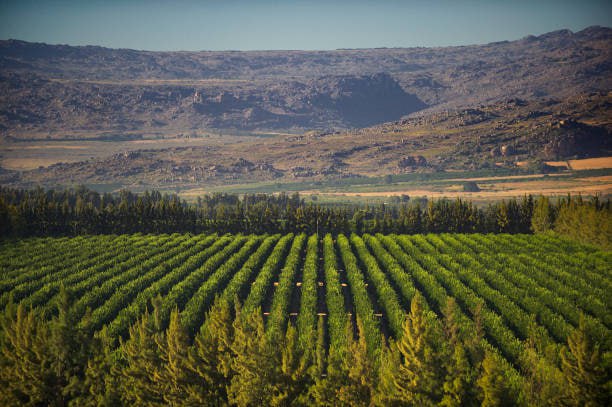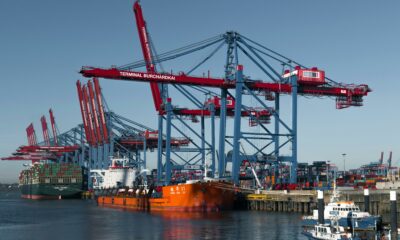Business
How South Africa Is Strengthening Agricultural Trade Ties with the EU

South Africa is stepping up efforts to solidify its agricultural trade relationship with the European Union (EU), a key export partner. The Agricultural Business Chamber of South Africa (Agbiz) welcomed Deputy President Paul Mashatile’s recent visit to France, saying it signals positive momentum for the sector and broader economic diplomacy.
While international attention was focused on events in the US, Mashatile’s diplomatic engagement in France focused on promoting economic cooperation and attracting investment. According to Agbiz chief economist Wandile Sihlobo, the trip aligned with President Cyril Ramaphosa’s efforts to strengthen global trade ties — including with the United States.
The EU: A Key Partner for South African Agriculture
In 2024, South Africa’s agricultural exports were valued at $13.7 billion (about R274 billion), with the EU accounting for 19% of that trade — making it the country’s third-largest agricultural export destination after Africa and Asia–Middle East regions.
Top products shipped to EU markets include citrus fruits, grapes, wine, avocados, pineapples, nuts, and wool. However, this relationship has faced recent friction.
One example is the EU’s stricter import rules on citrus, citing concerns over the “false codling moth” pest. Sihlobo pointed out that these measures were imposed despite South Africa already applying pest control treatments, suggesting the possibility of subtle protectionism to shield European producers, particularly Spanish citrus farmers.
Navigating Barriers and Building Resilience
Despite these challenges, South African agriculture has thrived in the EU market, leaning on long-standing trade ties and quality production. Sihlobo stressed the importance of continuous engagement to resolve issues, including phytosanitary barriers and regulatory red tape.
“While South Africa looks to diversify exports to markets like China, India, and the US, the EU remains a crucial partner that has historically supported the growth of our agricultural economy,” he said.
Farming Bodies Back Market Diversification
Agricultural stakeholders, including TLU SA and Agri SA, also praised the focus on both maintaining and expanding international markets.
TLU SA’s general manager, Bennie van Zyl, emphasized the importance of preserving current export markets while exploring new opportunities. “Export markets drive production, boost yield, and bring value into the national economy,” he said. Van Zyl also expressed hope that South Africa could secure more favorable trade terms with the US and expand access within the broader EU.
Agri SA president Jaco Minnaar echoed similar sentiments. “Opening up new markets, while keeping existing ones stable, attracts foreign investment, boosts local jobs, and helps sustain rural communities,” he said. “The more we can export, the more we can produce and benefit our economy.”
What’s Next?
As South Africa continues to navigate global trade complexities, diplomatic engagements like Mashatile’s visit to France highlight the strategic importance of agricultural exports to national growth. Resolving trade barriers, fostering open markets, and investing in long-term partnerships will remain key to the country’s food security, rural development, and economic resilience.
{Source: IOL}
Follow Joburg ETC on Facebook, Twitter , TikTok and Instagram
For more News in Johannesburg, visit joburgetc.com



























